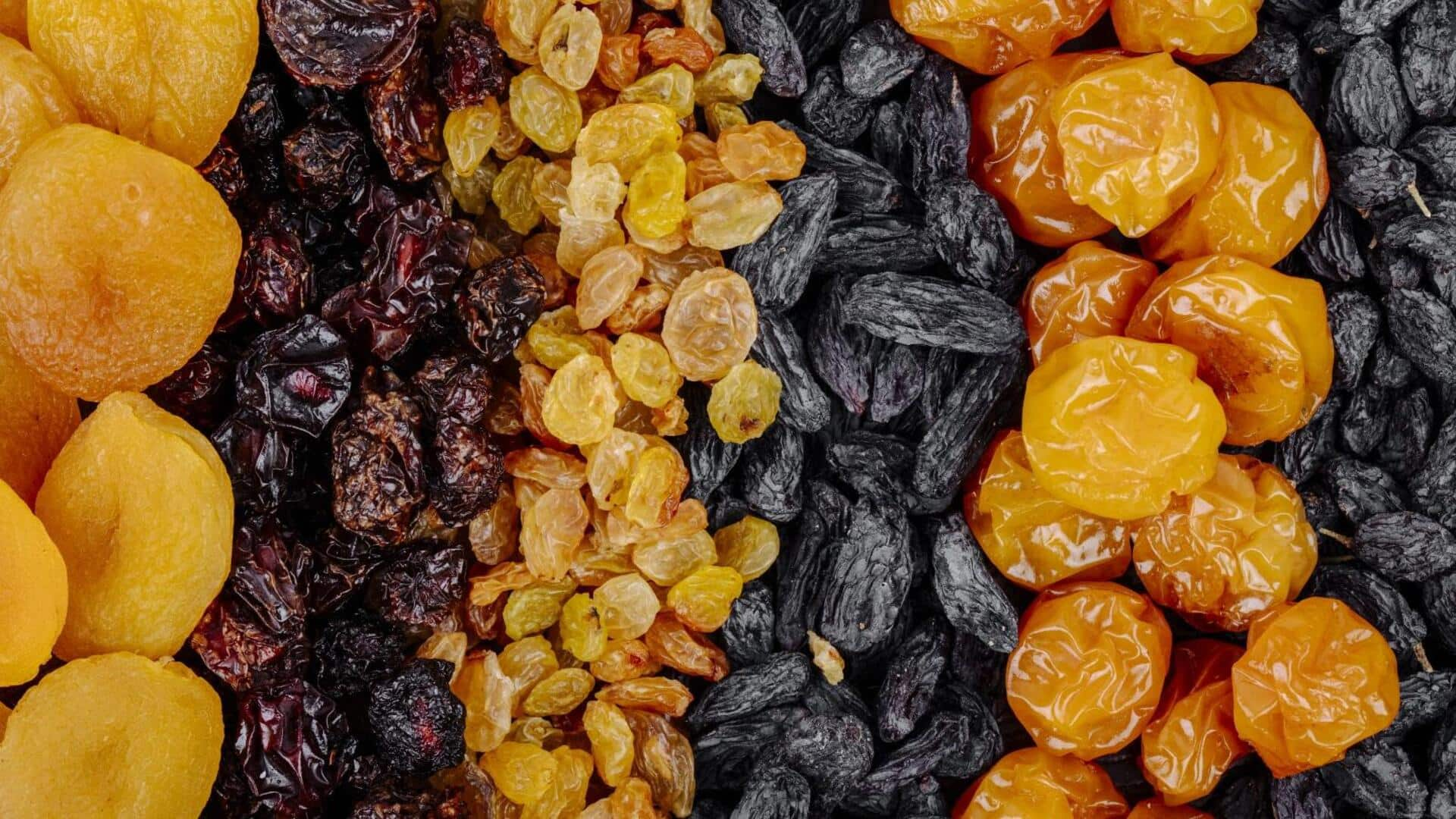
Raisins v/s figs: Comparing their nutrition
What's the story
Raisins and figs are two popular dried fruits that are often compared for their nutritional benefits. Both fruits provide a range of health benefits, making them a great addition to a balanced diet. While raisins are dried grapes, figs are made from the fruit of the fig tree. Each has its own unique set of nutrients that can contribute to your overall health.
Vitamins
Vitamin content in raisins and figs
Raisins are a good source of vitamin B6, which is important for brain health and metabolism. They also contain small amounts of other B vitamins, such as niacin and riboflavin. Figs, on the other hand, are rich in vitamin A and K. Vitamin A is essential for eye health, while vitamin K plays a role in bone health and blood clotting.
Minerals
Mineral richness: Calcium and Iron
Figs are particularly high in calcium, which is important for strong bones and teeth. They also provide some iron, which is important for transporting oxygen in the blood. Raisins also offer iron but in smaller amounts than figs. However, raisins have potassium that helps maintain fluid balance in the body.
Fiber
Fiber content for digestive health
Both raisins and figs are excellent sources of dietary fiber, which is essential for healthy digestion. Fiber helps keep bowel movements regular and prevents constipation. Figs provide slightly more fiber than raisins per serving, making them an excellent choice for those looking to increase their fiber intake.
Antioxidants
Antioxidant properties of each fruit
Raisins are loaded with antioxidants, such as polyphenols, which help fight oxidative stress in the body by neutralizing free radicals. Figs also have antioxidants, such as flavonoids, which help reduce inflammation and protect cells from damage. Adding either of these fruits to your diet can help improve your overall health by boosting antioxidant intake.